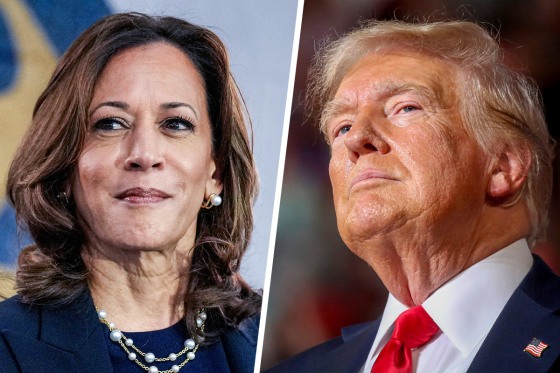Kamala Harris: One Failure to the Next, the Unraveling Continues
William Henry Harrison, the ninth U.S. president, proudly bears a couple of quirky historical titles: the one and only U.S. chief executive born as a British subject and the first representative of the Whig Party to occupy the White House. His inaugural address, a seemingly never-ending, two-hour oration, remains unrivaled in its length. However, his reign as president was disappointingly brief. A mere 31 days into his presidency, he passed away, becoming the first president to die while in office.
Harrison also has the distinguishing mark of being the last politician who, after suffering an initial unsuccessful bid for the presidential seat, later claimed victory in a subsequent election. Before him, Thomas Jefferson and Andrew Jackson achieved this feat. Richard Nixon also joins this club, though his triumph came significantly later. Grover Cleveland and Donald Trump uniquely won, lost, then won again.
When it comes to politicians who fought and lost their first presidential election and braved the odds to compete in the next one, history hasn’t been kind either. They have, without exception, tasted defeat once again. Democrat Adlai Stevenson and Republican Thomas Dewey dared to compete twice only to face rejection both times. The trend continued with Henry Clay and William Jennings Bryan, both of whom were unsuccessful three consecutive times.
A trend that’s clear to anyone examining political history: voters demonstrate an unfavorable attitude towards those they perceive as losers. This presents a bleak prospects for Kamala Harris. Last week, she confirmed that she has no intention of running for the position of governor in California. Speculation is running high that she’s setting her sights on a bigger prize – another shot at the presidency.
However, Kamala Harris and her ambitions have a formidable obstacle to overcome observed in the current unpopularity of the Democratic Party. With a net favorability plunging to minus 30 points, nearly three times as unfavorable as the GOP’s rating of minus 11, the Democratic Party is sinking to its lowest popularity levels in the past 35 years.
The party’s widespread disapproval stems from both internal dissent and external criticism. Democratic Party members are disgruntled, resenting their own party for not only losing to Trump but also failing to construct a robust opposition to him. Although this isn’t entirely Harris’s fault, her image has unfortunately become synonymous with the party’s dissatisfaction.
As far as the Democratic faction is concerned, dissatisfaction is not a homogeneous trait. The progressive wing of the party criticizes the Democrats for not putting up a strong enough fight, while centrists argue that the Democrats have veered alarmingly to the extreme left, getting themselves embroiled in cultural warfare and identity politics. The commonality binding each faction is a burning desire to secure victory.
Harris was in prime position to be the 2024 nominee primarily due to her representation of diversity. Biden clearly declared he would choose a female and, subsequently, an African American running mate. However, Harris’s troubles do not emanate from her gender or racial identity. Rather, it’s her inability to broaden the Democratic voter base that poses a significant problem.
To claim victory, Democrats require an able leader who can successfully convert Trump supporters. Harris’s failure to win can’t be attributed to scant Democratic turnout. Quite the contrary. Her downfall is her unappealing persona to a constantly evolving electorate.
In her discourse, Harris often comes across as an authoritative figure from a compact liberal arts college, rather than a potential presidential candidate. Her beliefs, with the exception of her stance on reproductive rights, sound as if they were meticulously prepared by focus groups, during a time when voters are seeking genuine, unfiltered authenticity. This has diminished her appeal to the broader electorate.
Further hampering Harris’s appeal was her ill-advised decision to closely align herself with Biden, despite his dwindling popularity. Harris did not attempt to differentiate herself or build an independent political identity. Rather, she naively clung to Biden’s controversial, often ridiculed, positions.
The maladies of the Harris political brand were further exposed when she chose to give her first interview after leaving office on Stephen Colbert’s ‘The Late Show.’ This decision underscored a critical error on her part: pandering solely to Colbert’s ideological audience base, which doesn’t align with the broader demographic Democrats need to attract in order to secure a win.
The reality for Harris is that, if the Democrats risk nominating her again, she is likely to be defeated and be remembered merely as a trivia answer, rather than a formidable political figure. Taking history and trends into consideration, if she does indeed run for the presidency again, it stands highly unlikely that she will be recognized as the 48th president of the United States.
Hers has certainly not been a journey characterized by political acuity, authentic engagement, or well-conceived strategy. Rather, Harris’s political odyssey has been marred by questionable allegiance, rhetorical monotony, and a vexing inability to connect with the evolving American electorate.
In conclusion, as Kamala Harris potentially gears up for another run at the presidency, her path is littered with challenges. The dwindling popularity of the Democratic Party and Harris’s own inability to appeal to the broader American electorate creates an unfavorable scenario.
In the cold light of increasing political scrutiny, it seems the odds may not be in Kamala Harris’s favor. But politics is a tricky game, and while historical trends do not augur well, the future of the Democratic Party and Harris’s role within it remains to be seen.

